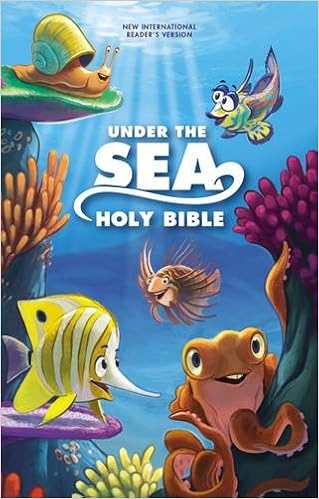
Under
the Sea Holy Bible (NIrV)
The Under the Sea Holy Bible (New International
Reader’s Version) is Zondervan’s latest edition of the biblical text for
younger readers. The age range for this
Bible is designed for students between the ages of 6-12, but is generally
geared towards those with at least a 1st grade reading level or
higher, thus it is most beneficial for those 8 and up. The text of the NIrV was unfamiliar to me
until I dived into this Bible version.
Certain translational issues come up that I was pleased with the
rendering, for instance in Deuteronomy 6.4 the editors decided to go with, “Israel,
listen to me. The Lord is our God. The Lord is the one and only God.” This translational decision reflects the
exclusivity of the passage that focuses on the true God of Israel, as opposed
to the surrounding deities. Further, I
was also pleased that they included in Matthew 6.13 the phrase, “Keep us from
sinning when we are tempted. Save us from the evil one.” The original rendering is better understood
with this phrase, ‘the evil one.’
In terms of the Under the Sea theme in this children’s
Bible, the theme throughout is almost non-existent. The portions that they editors include with
the sea theme include a short section on prayer, one on the commandments, a
part on becoming a Christian and one on finding this character in the
Bible. Although the cover and back of
the book are attractive and even grabbed my daughter’s attention, the consonant
theme didn’t flow throughout the entire Bible.
Yet, the aim of Bible reading is unparalleled in it rewards, and thus
this Bible will help children dive into God’s Word.
I hope young people will open up the pages of God’s
Word in this Under the Sea Holy Bible.
Thanks to BookLookBloggers for the copy of this book
in exchange for an honest review.
Comments
Post a Comment